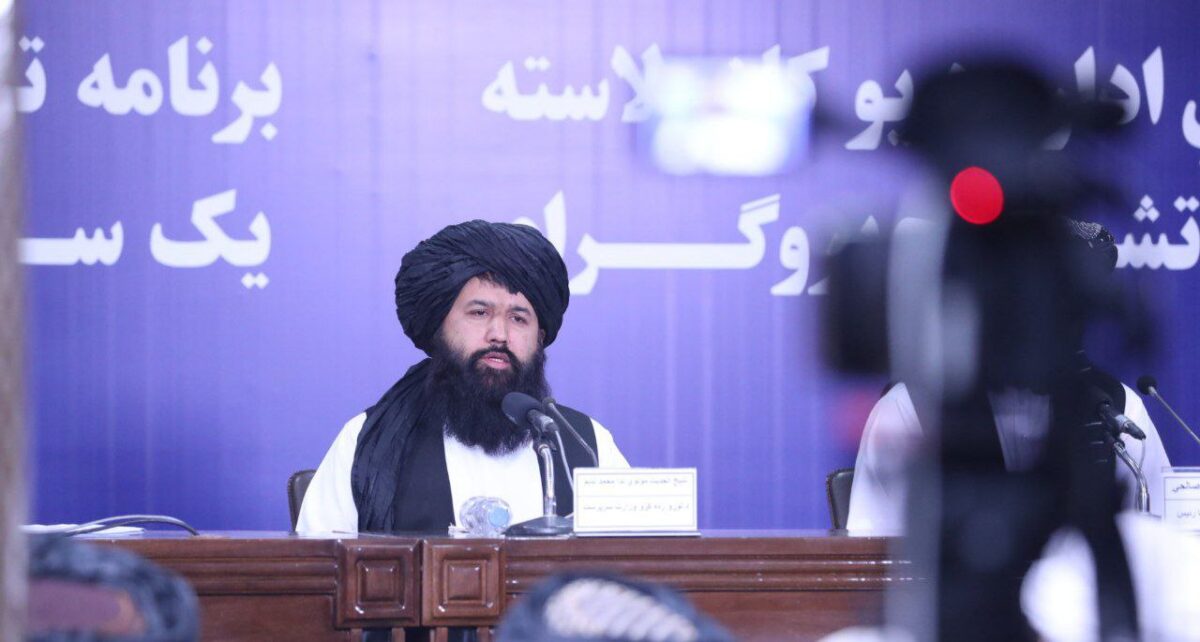KABUL, Afghanistan — The Taliban’s minister of higher education, Nida Mohammad Nadim, has remained silent for four hours after being publicly challenged to a debate on female education by a prominent religious scholar.
Sibghatullah Mawlawi Zada, a deputy at a religious seminary in Herat, issued the challenge after Nadim claimed earlier this week that he was open to discussing the rights of girls and women to education. Despite his initial statement, Nadim has yet to respond to Mawlawi Zada’s invitation.
The silence from Nadim has drawn criticism from female students, who urged the minister to defend the Taliban’s stance on education for women and girls. Taliban has banned education for female students beyond grade six, as well as at universities, a decision that has sparked widespread condemnation both within Afghanistan and internationally.
“If he is confident in his position, Minister Nadim should participate in this debate and clarify the fate of our education and employment rights,” said Sahra, a student at Kabul University who has been barred from continuing her studies. “Our future is at stake, and it should not be played with any longer.”
Nadim’s initial willingness to debate came amid a global outcry over new Taliban restrictions codified by the Ministry for the Promotion of Virtue and the Prevention of Vice, which include a ban on broadcasting women’s voices in public spaces.
“I am ready to answer the call of the Minister of Higher Education and participate in any debate he wishes,” Mawlawi Zada said in response to Nadim’s remarks. However, the minister has since remained silent.
Despite repeated inquiries, the Taliban’s Ministry of Higher Education has not responded to questions from Amu TV regarding Nadim’s stance.
Nadim also stated on Sunday that the issue of female education would remain unresolved until further notice. His comments coincided with the introduction of a new law that imposes additional restrictions on women and girls, prompting continued reactions at both national and international levels.
“With these new laws, the Taliban has erased us from public life and is further restricting our rights every day,” said Uranus Atifi, a member of the Afghan Women’s Activists Coordination Association. “We call on world leaders to stop making empty promises and take serious action to support Afghan women.”
Atifi urged the international community to isolate the Taliban, impose sanctions on its leaders, and support those who oppose the regime. “Our struggle is not just for Afghan women; it is a fight for justice and human equality,” she said.
The United Nations High Commissioner for Human Rights has also condemned the Taliban’s new restrictions on women, describing them as intolerable. Ravina Shamdasani, a spokesperson for the U.N. Human Rights Council, said, “The Taliban is attempting to render Afghan women and girls invisible. Their voices are no longer permissible; education is no longer permissible. This needs to stop.”
Shamdasani added that the U.N. is in talks to apply pressure on the Taliban to listen to Afghan women.
In response to the Taliban’s ban on broadcasting women’s voices, Afghan women protesters around the world have held gatherings where they recite poetry to raise awareness of their plight. While the Taliban has not responded directly to the international protests, its Ministry for the Promotion of Virtue and the Prevention of Vice has dismissed the criticism as baseless, reaffirming its commitment to enforcing the new law.





